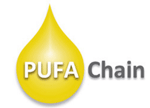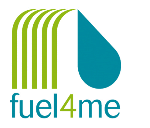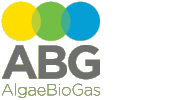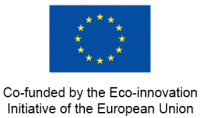Main menu
You are here
Links
AlgaeBiogas project is linked with many other EU projects. Here is a partial list:
 |
The Saltgae H2020 project is focused on the treatment of saline wastewater from food and beverage industry in presence of organic content using algal technology represents a challenge for many industrial sectors. SaltGae started in mid 2016 and will develop and demonstrate a techno-economically viable solution for the treatment of saline wastewater at three demonstration sites. |
 |
PUFA Chain project is developing a robust scientific and technological basis for substantiating strategic and technical decisions for the industrial development of high-value products from algae with concrete application of high market relevance. The main targeted application is the use of high purified omega 3 fatty acids (DHA/EPA) as building blocks in modern oleo chemistry to gain high value products for nutrition and pharmaceutical applications. |
 |
BISIGODOS aims to address the production of valuable algae derived chemicals, amino acids and high added-value bio-resins starting from algae biomass fed directly with CO2 from industrial emissions (cement, steel factory, thermal power plants, etc.) as a raw material that is cost-effective and renewable. The process is assisted by solar radiation, nutrients and sea water microalgae. |
 |
The D-Factory will set a world benchmark for a sustainable CO2 algae biorefinery. The D-Factory is based on biomass from the halotolerant microalga Dunaliella salina. Dunaliella cultivation is the largest of any microalga (many 100s hectares). |
 |
MIRACLES is an industry-driven R&D and innovation project aimed at developing integrated, multiple-product biorefinery technologies for the production of specialties from microalgae for application in food, aquaculture and non-food products |
 |
The AlgaeCluster is a "super" consortium of the following three large-scale industry-led projects funded by EU (DG Energy) and aimed at demonstrating the production of algal biofuels along the whole value chain, covering strain selection to algae cultivation and production, oil extraction, biofuel production and biofuel testing in transportation applications. |
 |
The InteSusAl project will demonstrate an innovative approach to generate biofuels from microalgae in a sustainable manner on an industrial scale. The demonstration will optimise the production of algae by both heterotrophic and phototrophic routes. |
 |
The All Gas project is demonstrating algal bacterial wastewater treatment at large scale (3.6 ha). Technologically they are most similar to AlgaeBioGas, but their substrate is municipal wastewater and they are using algal biomass to produce biomethane for transportation fuel. We learned a lot from the All Gas project. |
 |
The BIOFAT is a microalgae-to-biofuel FP7 demonstration project that integrates the entire value chain of algae process from optimized growth, starch and oil accumulation, to downstream processing (biorefinery) including biofuel production. The value chain of biofuel production from microalgae will be tested on a large scale during the project for energy efficiency, economic viability, and environmental sustainability. Project operates two demonstration sites in Italy and Portugal, each of 0.5 ha. |
 |
The µGATE project aims to verify the feasibility of using microalgae to remove ammonia nitrogen from wastewater of agro-zootechnical origin as a technically simple solution to the problem of pollution by nitrates. This is one of the project that are very close to AlgaeBiogas. It is run by Politechnico Milano and founded by Fondazione Cariplo. Project includes lab scale work and pilot plant in Cremona. |
 |
CoFert - CO2 capture and nutrients recycling using a patented algae system for bio-fertilizer production - this a Eco-innovation project peer to AlgaeBioGas. They are building a demonstartor in Almazan, Spain and their focus includes biogas upgrading using algal technology. |
 |
The DEMA Consortium will develop, demonstrate and license a complete economically competitive technology for the direct production of bioethanol from microalgae with low-cost scalable photobioreactors. Initial proof-of-concept results show via life cycle assessment and economic balance that it is feasible to use microalgae to produce bioethanol. The catalytic conversion of solar energy, H2O and CO2 into ethanol will be carried out by a metabolically engineered strain of the cyanobacterium Synechocystis sp. PCC 6803. |
 |
Fuel4me aims at developing and demonstrating an integrated and sustainable process for continuous biofuel production from microalgae, and thereby making the second generation of biofuels competitive alternatives to fossil fuels. |
 |
SPLASH covers the whole process chain from optimized biomass production to product development and exploitation. We will investigate two types of microalgae: the green alga Botryococcous braunii and the green microalgae: Chlamydomonas reinhardtii, to which the unique hydrocarbon and polysaccharides producing genes from Botryococcus will be transferred. Further steps will then aim at conducting biomass cultivation on pilot scale, extracting the valuable compounds and processing them into value-added polymers and chemicals. A market assessment will make sure that the most promising end applications will be selected for exploitation. |
 |
The CO2AlgaeFIX was a LIFE+ (2010) project with main objective of capturing CO2 from power plants by cultivation of microalgae. A prototype vertical plane bioreactor (known as cage-bag) was developed optimize the efficiency of CO2 capture for processing into biomass and energy. Project concluded in 2015. |
 |
The EnAlgae is an Interreg (North-West Europe) project that has built 10 pilot algal plants at 10 different locations. Project concluded in 2015 and produced very interesting results. |
 |
The AquaFuels project was one of the early FP7 DG Energy projects on aquatic fuels - it concuded in 2011. Many working connections developed within this project and European Algae Biomass Association is one of the results of the project, as well as "continuation" of the project's activity within the AlgaeCluster super-consortium. |




